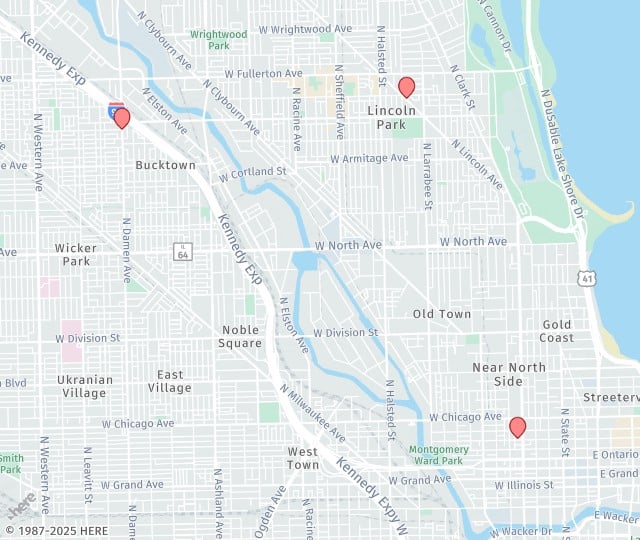A: Dr. Gharbi and the team at Old Town Med Spa will work with you to set a goal that is both attainable and healthy. In general, we are more concerned about the fat mass and fat percentage than actual weight and BMI. Losing 10 pounds of fat is far better than losing 10 pounds of water.QHow much weight will I lose with the hCG diet? Most hCG dieters report a loss of 1 to 2 lbs a day. At the very least, dieters may
A: Most hCG dieters report a loss of 1 to 2 lbs a day. At the very least, dieters may lose 0.5 pounds a day, and at the most, 3 + lbs a day. 1 lb is generally lost on the first day. Factors that guarantee faster weight loss include increasing vegetable intake and mixing salad with each meal. Fiber intake is extremely important, as is water intake.
A: Everyone is different. Each program is tailored to each individual. However, the first three days are the most intense. After that the nutritional values will be significantly adjusted to ensure a safe and effective weight loss, more importantly, fat loss.
A: An increase in the level of ketones in the body results in a larger than normal excretion of sodium and water loss. During ketosis, many people tend to feel sluggish and tired and will experience low levels of energy. Others, less severe side effects include constipation, gas, and excess protein in the body.
A: Low Carbohydrate diets not only help in weight loss but also in lowering triglycerides and improving HDL: Total cholesterol ratio. Due to the low glycemic index, there is also a significant improvement in glucose management in diabetics.
A: This program is not just a diet. It is a lifestyle change. There is no magic wand. Our purpose is to educate and support a healthy lifestyle so that when you reach your goal, you are able to maintain your weight on your own. If you go back to old habits your regain weight.
A: Nausea or upset stomach may be a side effect of taking vitamins. Usually, this is relieved by taking medication and multi-vitamins after eating. Occasionally, some people do not tolerate certain medications and need to be taken off of them or switched to a different medication if needed.
A: Constipation is one side effect of a low carbohydrate diet. It is important that you eat a high amount of fiber ( E.G. Broccoli, spinach) It is also very important that you drink plenty of water. Exercise will also increase your bowel activity. If constipation persists, there are alternatives such as “ the perfect Food” and an over the counter stool softener, “ Colace” which can be taken after discussing this with your doctor.
A: Dining out is tough because restaurants use a lot of butter, oil, and salt to make sure their food taste good. Even “ Healthy meals” can be prepared in an unhealthy manner. It is always safest to prepare your own meals. However, if you find yourself at a restaurant ask if they have a “ lighter fare” menu or if they can recommend low carb items. In general, the safest thing will be a grilled or baked fish, chicken ( skinless) with a steamed vegetable ( not potatoes or corn). If you have a salad, ask for them to put the dressing on the side or bring your own. They often will have balsamic vinegar, olive oil or lemon juice. Just keep track of what you use.
A: Everyone’s body responds differently. Our recommendation is to get a personal trainer. Dr. Gharbi works with a few good personal trainers who knows our program and will be best able to optimize a fitness regimen for you.
A: The most important thing to do is to stay hydrated and ensure a safe amount of weight loss. A safe amount is generally 1-4 pounds per week. Beyond that, your are at risk of water and muscle loss. There is also a great deal of research involved with skin care. Your doctors will recommend a treatment plan with one of their aestheticians to optimize skin care. This will help to maximally restore your skin’s elasticity.
A: Again, it is very important to drink plenty of water. The decrease in carbohydrates will cause the body to excrete ketones and water. Keeping sugar fee chewing gum and mouthwash on hand can help.
A: Prior to treatment, your doctor or practitioner will request blood tests and perform a general health assessment. For individual injections, generally, no preparations are required. If your physician has you self-injecting, specific sterilizing processes are involved, and certain steps can be taken to reduce the discomfort of injections here:
- Easing the Discomfort of Injections: If your doctor has sent you home with pre-mixed injections of hCG for your weight loss protocol, these tips may help with self-administration of your hCG shots. Pinching the skin and pulling it out gently, can provide a distraction to your nerves so you do not feel the needle. Some people prefer the quick motion shot, while others prefer resting the needle on the pinched skin and pushing it through in a smooth motion.
- Relax the muscles prior to injection.
- Apply ice to numb the location prior to injection.
- Rotate injection sites.
- Allow medications that have been refrigerated to warm to room temperature before injection.
- Allow the alcohol on your skin to air dry prior to injection

